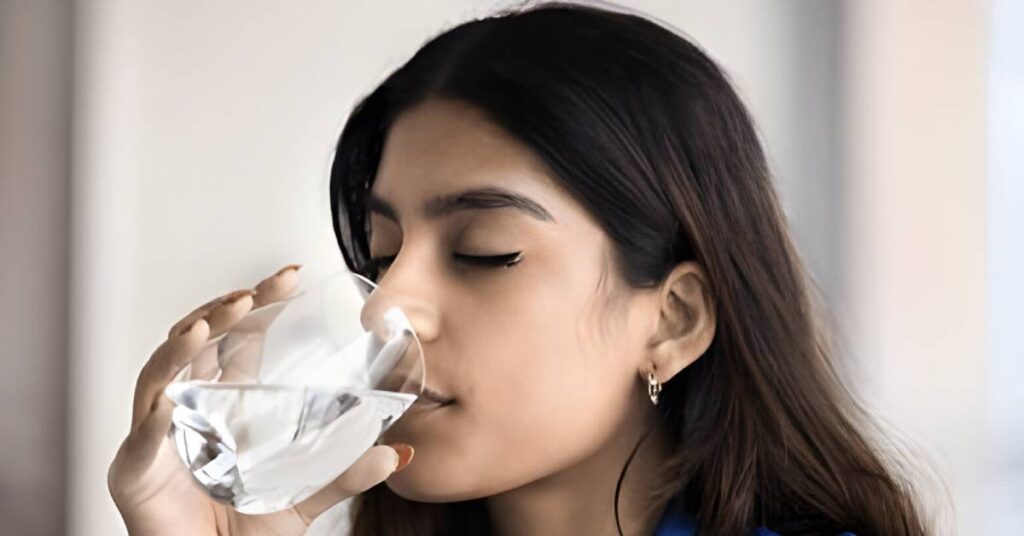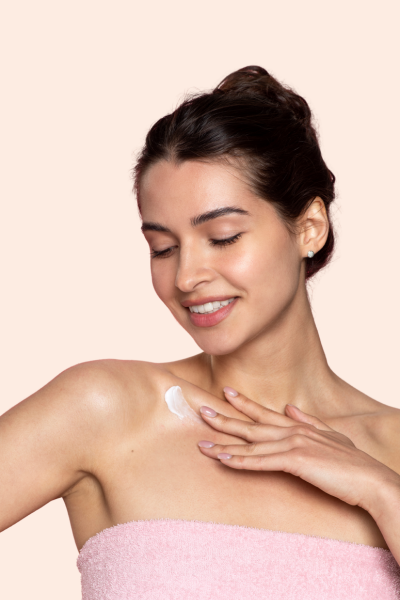Good skin health is always fuelled by a balanced and nutritious diet. When one consumes a healthy, appropriate diet, their skin glows and functions much better, because of the nutrients that strengthen the bonds and elasticity of the skin. Eating particular foods helps to moisturize and protect the skin too!
But sometimes, certain foods can also harm the skin’s protective layer, resulting in super oily or dry skin. Not consuming healthy foods, will result in breakouts or drier skin due to undernourishment.
Let us first take a look at what should one with acne, and oily skin eat.
Best foods for acne and oily skin:
Keeping away from dairy products like milk, cheese, yogurt, and ice cream would help people with acne. Also, foods with a high GI (causes a rapid increase in blood glucose) like chocolates should be avoided as they worsen the symptoms of acne.
Also, keep in mind that there aren’t many research studies to support the view that greasy foods cause oily skin or acne. In fact, overactive sebaceous glands cause a lot more acne. It is not always due to the oil or fats in the food we consume. To help provide the skin with a protective barrier from pollution and an unsettling environment, an appropriate diet is essential.
Dry skin can also be a result of certain nutrient defects like Vitamin A, C, D, and E, also nutrients like zinc and selenium. So, making sure that these minerals and vitamins are included in one’s diet helps massively in the skin’s health and look. One must also include foods like turmeric and Omega-3 as they help prevent dry skin. Here is a list of them:
1. Sweet potato
Sweet potatoes are a very good source of vitamin A, which not only helps with dry skin but it also has other benefits. It can help fuel the body when there are low levels of iron in the blood and increases chances of survival against other health conditions, like measles.
2. Cod liver oil
Cod liver oil is high in source of vitamin D. Each tablespoon of cod liver oil consists of 34 mcg of Vitamin D, which equates to 170% of the daily value. But there are different types of vitamin D – vitamin D3 and vitamin D2 especially. How consuming cod liver oil helps with dry skin is that it has Vitamin D3, which can inhibit keratinocytes, which enforces psoriasis and other skin conditions. It also helps reduce inflammation, it helps fight against the harmful effects of Ultraviolet rays and it helps in healing of wounds.
3. Sweet red pepper
This is an amazing source of vitamin C. Just half a cup of these contains 94 milligrams of Vitamin C which leads to 106% of its daily value.
Vitamin C is essential in fighting dry skin because it drastically hydrates the skin. Also, it protects the skin against UV rays from the sun; Thus, many people use vitamin C serum in their morning skincare routines. It also lifts up the collagen levels in the skin, resulting in a lessening of aging of the skin. (Wrinkling, pigmentation, etc.)
4. Baked beans
Zinc is found in baked beans. Half a cup of beans contains 2.9mg of zinc, which has a daily value of 26%. Zinc has a lot of health benefits, i.e., hydrating and moisturizing the skin, it boosts the immune system, helps treat diarrhea and wound healing.
5. Avocado
Avocados are rich in Omega-3. A diet that is low in Omega-3 can lead to dermatitis or dry and scaly skin. A few researches have shown that consuming Omega-3 daily over a period of 60 days can reduce the itching of skin and increases skin hydration.
6. Kiwi
It is also another sufficient source of vitamin C. Each Kiwi contains around 64mc of vitamin C, its daily value being 71%. Lack of vitamin C affects the skin adversely, resulting in joint pains, iron deficiency and a decrease of wound healing. It also has other benefits from protective functions. Having vitamin C can lessen the risk of developing cataracts (an eye problem) and also helps with cold symptoms.
7. Turmeric
Turmeric is an amazing source of food that helps in fighting against dry skin. There is a compound that is found in turmeric, known as ‘curcumin’, It has anti-inflammatory properties. It can also help with anxiety, muscle soreness, and one’s metabolism. Curcumin is also helpful in combating various issues like dermatitis and psoriasis. People often even apply turmeric on their skin to get rid of acne as it has antibiotic properties.
8. Sunflower seeds
Sunflower seeds are highly enriched with vitamin E. Each ounce of dry roasted sunflower seeds contains 49% of the daily value, that is 7.4 milligrams. Sunflower seeds are filled with antioxidants that help with the adverse effects and damage from the ultraviolet rays of the sun and irritated skin. If one combines a source of vitamin D along with a source of vitamin E, then that can help with inflammation and flushing of the skin.
9. Oat, soy, and almond milk
These ingredients are filled with vitamin D. A whole glass of any of these milks provides up to 13 to18% of daily value. They are all anti-inflammatory. They also help to moisturize your skin and keep it hydrated for a long time. Thus, the consumption of such vegan milk is a great option for people with dry and irritated skin.
10. Green tea
Green tea immensely helps with hyperpigmentation and dry skin. It also contains anti-aging properties and helps with sun damage on the skin. Green tea can increase the collagen in the skin (elastin fibre content) and it also reduces oxidative stress. This, resulting in a smoother and moisturized skin. People use green tea masks on their skin too.
Some other good foods to consume for overall health of your skin are:
- Oatmeal, puffed rice
- Melons, pineapples, pumpkins, potatoes.
- Short grain white rice, etc
The conclusion
Even though it’s not a magic bullet for skin problems, experts agree that a holistic approach to skin care must include diet.
Depending on your skin type, certain meals are beneficial for your skin. After determining your skin type, you can select meals that will highlight your greatest qualities and help you with any problems you may have.
Before restricting or eliminating anything from your diet, consult your doctor. In general, it’s advisable to minimise alcohol consumption and eat fried and sugary meals in moderation for the healthiest skin possible.
The Daily Aesthetics Clinic – Redefining Skin & Hair Treatments in Pune
The Daily Aesthetics Clinic is a trusted dermatology and aesthetic center in Pune, offering advanced treatments for acne, pigmentation, hair loss, laser hair removal, Hydrafacials, hair transplants, and personalized skincare.
Under the guidance of Dr. Arshi Rahul, the clinic combines medical expertise with FDA-approved technology to deliver customized treatment plans that focus on restoring skin health, enhancing radiance, and ensuring every patient feels confident and cared for.
With the trust of over 3,500 patients and a 4.9★ rating, The Daily Aesthetics Clinic is known for delivering effective, safe, and personalized care in a calm, welcoming setting.
We serve clients across Pune through our three conveniently located clinics in Baner, Kharadi, and Kalyani Nagar.
Dr. Arshi Rahul
Aesthetic Physician & Skin Specialist | 11+ years of experience
Expert Dermo-Cosmetologist & Trichologist (Gold Coast Training Academy, Australia) | Certified in Laser, Botox, Fillers & Thread Lifting | Over 10 Years of Advanced Aesthetic Expertise






